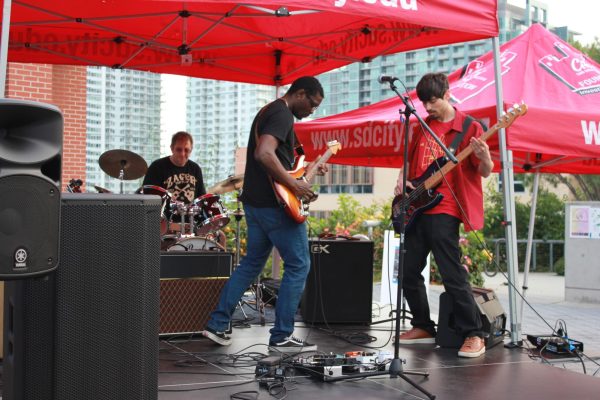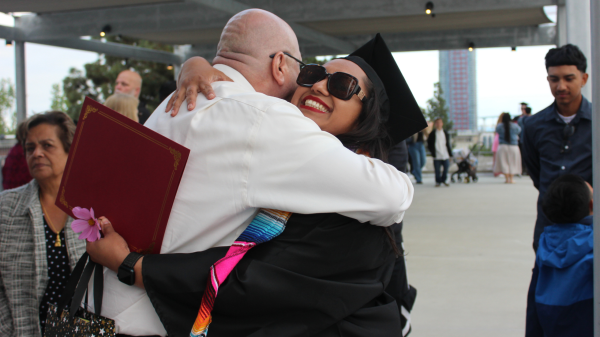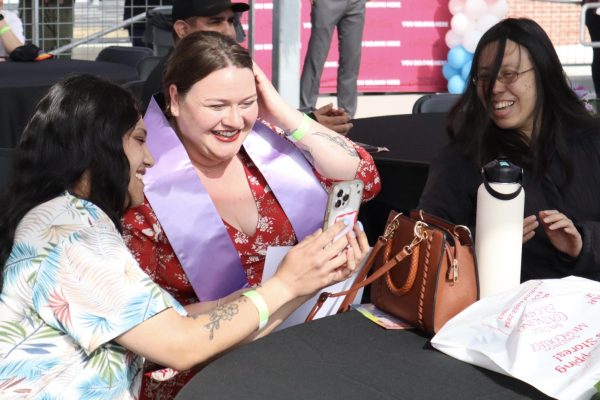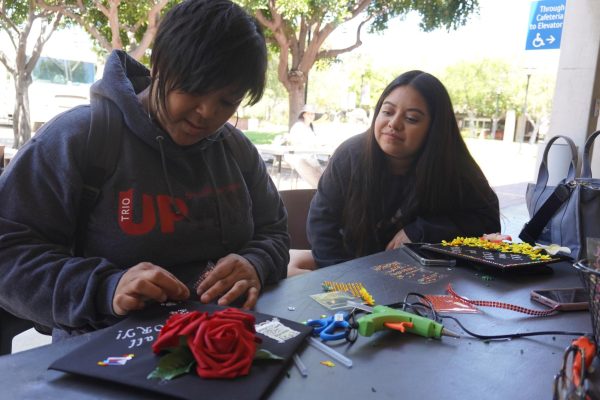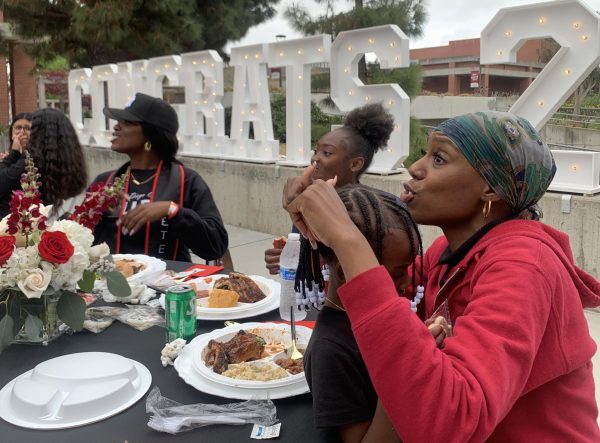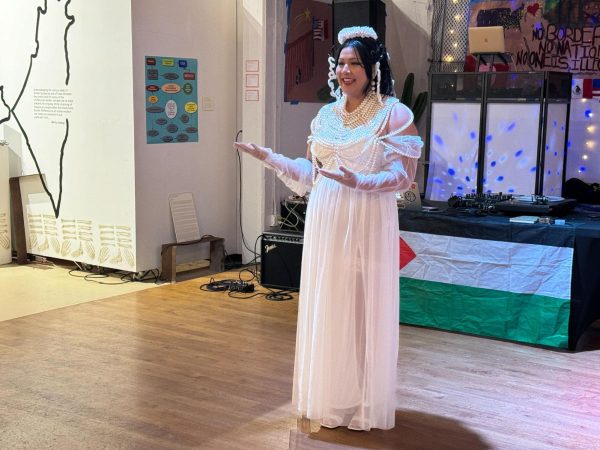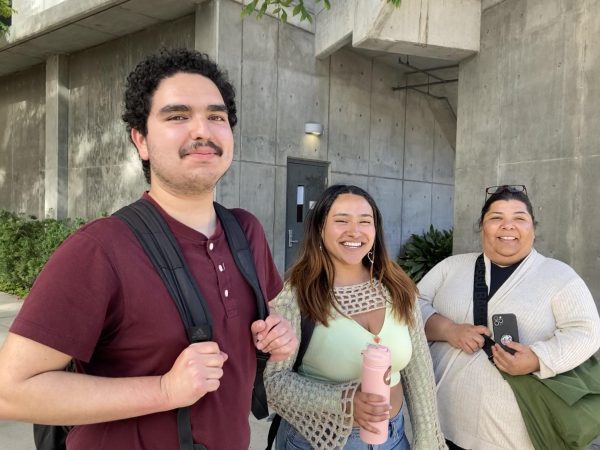Latino communities suffering disproportionately from COVID-19
San Diego moved into most restrictive purple tier on Nov. 10
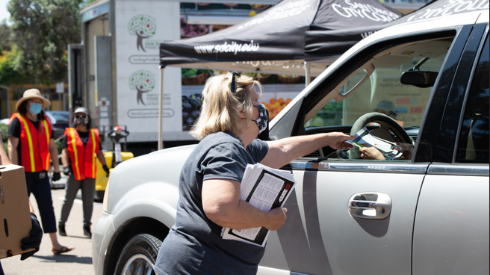
Dotti Cordell greets students coming to campus for the September Hunger Action Day. San Diego City College photo
November 10, 2020
In San Diego County, where the number of confirmed COVID-19 cases is on the rise once again, there is clear evidence which communities are being disproportionately impacted by the pandemic.
The virus has exposed racial, healthcare and housing disparities that have existed for generations and have left the Latino community more predisposed and vulnerable to COVID-19.
This was the finding in a report released by The Chicano Federation in September that revealed serious and systemic barriers preventing Hispanic communities from undergoing COVID-19 testing and engaging in contact tracing efforts in San Diego County.
In many Latino communities, trust in local and federal government remains low and the information given out has been confusing or unhelpful. Latino employees are overrepresented in essential workforce services, such as cleaning, grocery, and childcare services.
While the Latino community makes up 34% of the county’s population, it has 58.8% of all confirmed positive COVID-19 cases, according to data from San Diego County on Nov. 9.
The state of California announced a new adjusted weekly COVID-19 case rate of 8.9 for San Diego County on Tuesday putting the county above the 7.0 case rate threshold for the red tier, moving the county into the most restrictive purple tier.https://t.co/m0rwwsc40D pic.twitter.com/9P5cS7zilO
— CBS News 8 (@CBS8) November 10, 2020
This month, the State of California was the first in the nation to launch a new health equity metric that will focus on the disproportionate impact that the virus is having on the county’s minority communities.
The new metric is expected to focus on the COVID-19 case rates and test positivity and motivate counties to provide the disadvantaged communities with more resources.
At San Diego City College, 50% of students identify as Latinx, according to the demographic data from last spring.
Since the pandemic started, Student Health Clinic Director Dotti Cordell has been very concerned about how COVID-19 would affect all students, and particularly students of color, as she knew these were communities that already carried a heavy burden of lack of health care and financial insecurity.
Cordell said that despite being able to conduct a survey among students, City College can anticipate that their Latino students are being impacted just as much as others of the same community in the county and in the state.
“This is as much concern to myself and to all of the faculty and leadership at City College,” said Cordell, who has been at San Diego City College since 2001. “We know that we need to address this, and this is a very high priority.”
Cordell said most students are not ready to trust and take the vaccine when it becomes available.
“We have to establish trust between communities of color and other marginalized groups and western health care system that has discriminated against them,” Cordell said. “With specific to COVID, we need to explain what the vaccine is and build trust after it has been established safe. We encounter that minority communities do not trust flu shots in a regular season.”
.@chicanofed CEO Nancy Maldonado reminds elected officials that “our county’s lowest-paid people are the most essential to its functioning” https://t.co/2MnXEcrThZ
— Union-Tribune Ideas (@sdutIdeas) November 6, 2020
She has also mentioned the importance of “promotoras,” trusted and respected members of the community, who are often health workers. In San Diego, promotoras have started working in local Latino communities this summer to help battle the spread of COVID-19.
Cordell wants City College students to know that Student Health Center and Mental Health Counseling are open and working virtually during the pandemic. For more information, visit the Student Health Clinic online.
Cordell reminds students of the importance of wearing masks and social distancing, having connections with support groups, and following the evidence-based scientific information, including the guidance from Centers for Disease and Control Prevention and World Health Organization.




